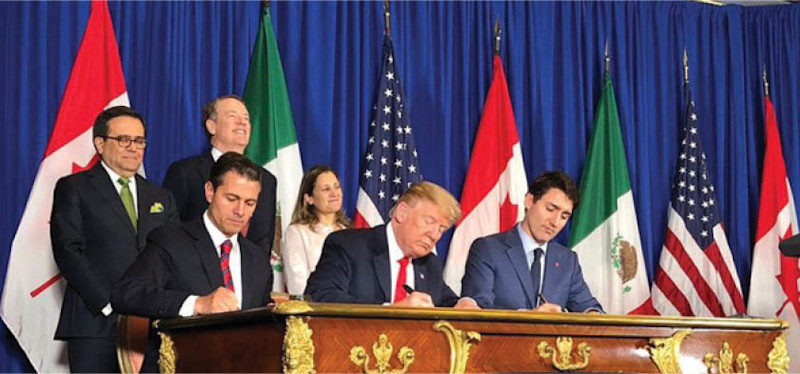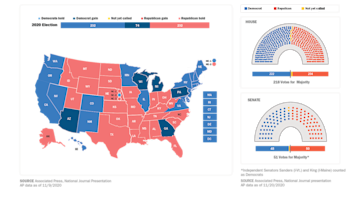What progress can manufacturers expect from Washington in 2020, especially given that it’s an election year? AMT provides input on issues that support R&D and innovation; increase global competitiveness; and build a Smartforce as dictated by our Manufacturing Mandate. The new year started strong with Congress and the administration taking action on trade and emerging technologies.
U.S.-CHINA SIGN PHASE ONE OF TRADE DEAL
The United States and China signed phase one of a trade deal, calling a ceasefire to the trade war that began well over a year ago. While the agreement is not a game changer, China’s pledge to purchase $200 billion in U.S. goods over the next two years, including nearly $78 billion in manufacturing goods, is significant if it can be done in the short timeframe. After the signing, China indicated that market conditions will dictate when the purchases would be made. Regarding intellectual property, China will no longer require technology transfer as a price for doing business there. As far as enforcement goes, both countries will make it easier to seek recourse for IP violations.
While the deal keeps most U.S. tariffs on Chinese goods in place, tariffs that were postponed in December were cancelled. In the days leading up to the agreement, the administration withdrew its designation that China is a currency manipulator.
Chinese subsidies were noticeably absent from phase one. However, both sides said negotiations on phases two and three will begin immediately. To read a recent report from the Federal Reserve on the effects of tariffs on manufacturing, visit .
U.S. SIGNS USMCA
The Senate overwhelmingly approved the U.S.-Mexico-Canada free trade agreement after the House approved the measure in December. Canada is the last country to ratify the agreement. Ratification of USMCA is a top priority for AMT.
U.S. SENATE PASSES IOT LEGISLATION
The Senate passed the bipartisan Developing and Growing the Internet of Things (DIGIT) Act sponsored by Senators Cory Gardner (R-Colo.), Deb Fischer (R-Neb.), Brian Schatz (D-Hawaii), and Cory Booker (D-N.J.). The bill would convene a working group of federal entities and experts from the private and academic sectors to provide recommendations to Congress on how to facilitate the growth of Internet of Things (IoT) technologies. The group’s recommendations would focus on how to foster the development and application of the IoT across the United States. The bill now moves to the House for consideration.
WHITE HOUSE UNVEILS 10 PRINCIPLES FOR AI REGULATIONS
As part of its American AI Initiative published last year, the White House released a draft memo on the that federal agencies should consider when developing laws and rules for the use of artificial intelligence in the private sector. The memo stressed that a key concern was limiting regulatory overreach and urged other nations to follow the U.S. example of the restrictive regulations on AI. The European Union, for example, is looking at a more assertive approach to regulations.
ADMINISTRATION ISSUES GUIDANCE FOR AUTOMATED VEHICLES
The White House and Department of Transportation released a report, “Ensuring American Leadership in Automated Vehicle Technologies” (AV 4.0), that unifies government efforts on automated vehicles across 38 federal departments, agencies, commissions, and executive offices. AV 4.0 provides high-level guidance to state and local governments, innovators, and other stakeholders on the U.S. government’s approach toward AVs.
OHIO GOVERNOR DEWINE SIGNS “TECH CRED” BILL INTO LAW
For manufacturers in Ohio, a new law makes it easier for companies to provide recognized training to their workers. The Tech Cred program aims to decrease the workforce gap by creating a grant program that reimburses employers who provide training toward industry-recognized credentials. There are more than 300 credentials available. The program is geared toward incumbent workers and individuals looking to enter an in-demand field. Businesses and individuals will be eligible to apply. Enactment was a bipartisan priority for the Ohio General Assembly.









